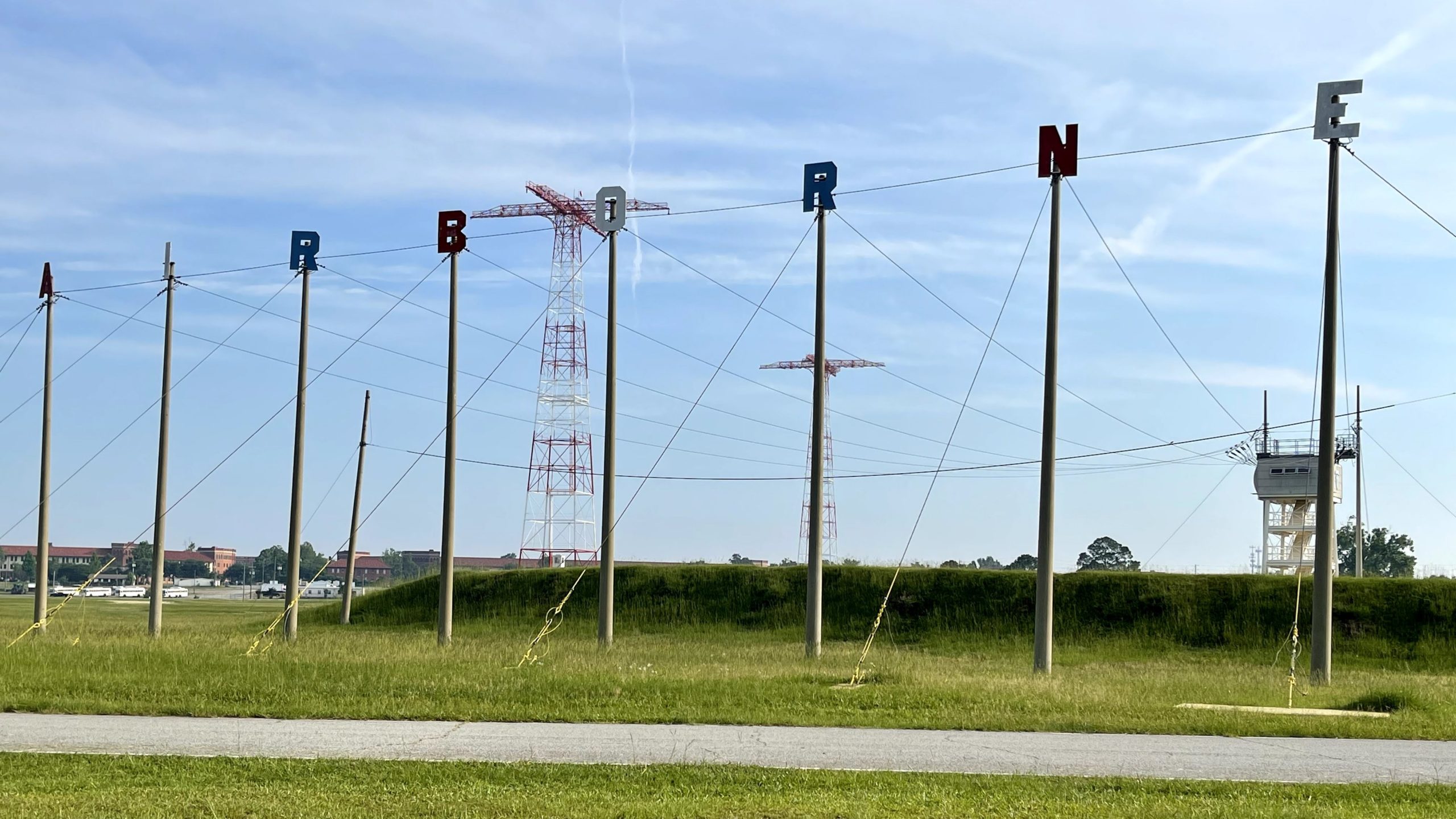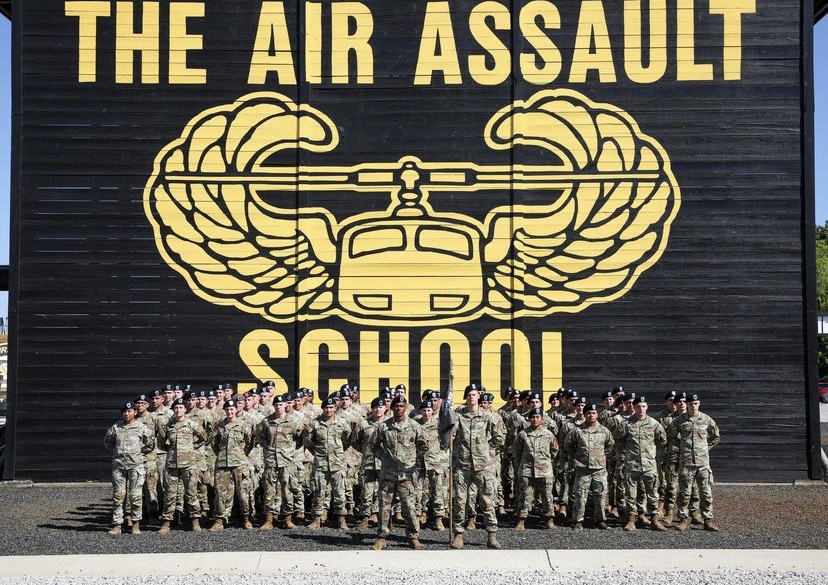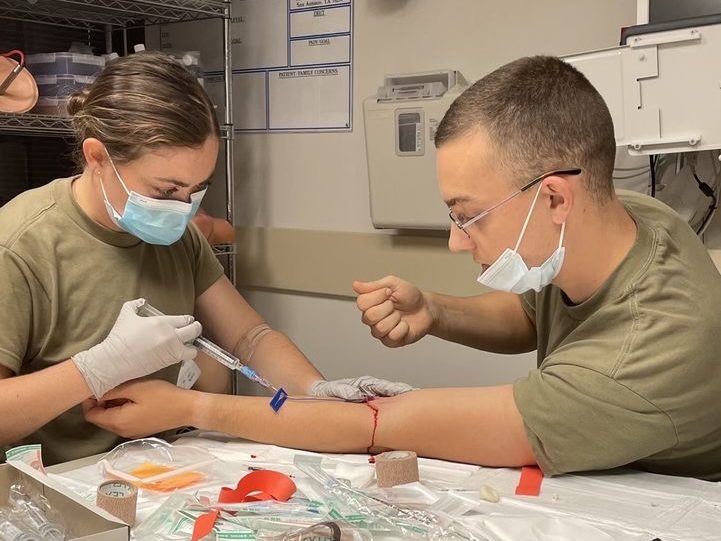Cadet Summer Training
Advanced Camp
Advanced Camp is a 35-day training event designed to develop a cadet’s critical thinking and problem-solving skills and to forge them into tough, adaptable leaders who can thrive in ambiguous and complex environments. Cadets are evaluated on their ability to lead at the Squad and Platoon levels, both in garrison and tactical environments. Cadets are mentally and physically tested during a 12-day consequence-driven field training exercise that replicates a combat training center rotation. Successful completion of the Advanced Camp is a prerequisite for commissioning.
The mission of Advanced Camp is to assess a Cadet’s potential to serve as a commissioned officer. It is the most significant training and evaluation event in ROTC. Training is complex, challenging, and rigorous and is conducted in a stressful training environment. Cadets reinforce basic skills through squad (9-13 Cadets) level leader development exercises, and transition to platoon (40-50 Cadets) level operations in a company construct. Prior to attending Advanced Camp, Cadets receive intelligence updates, preparing them for the geo-political environment to which they will deploy and operate.
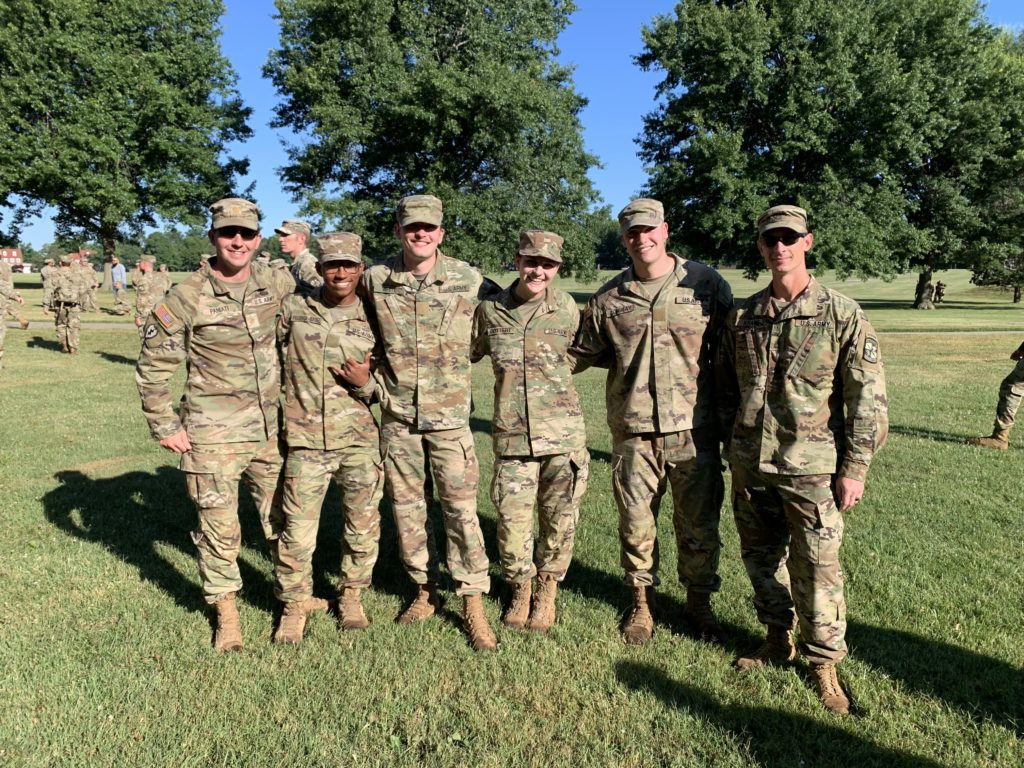
Basic Camp
Basic Camp is a 32-day training event designed to introduce Cadets to the Army. The objective is to develop Cadet leadership skills and train them on individual and junior leader tasks to develop and reinforce Warrior Ethos and our Army Values. Basic Camp provides the critical thinking skills necessary to succeed in ROTC, and, ultimately, the Army. Basic Camp Cadets graduate the course prepared to lead at the team (3-4 Cadets) and squad (9-13 Cadets) level.
Basic Camp’s primary target audience is the Lateral Entry Cadet and the freshman Cadet. Lateral Entry Cadets typically decide to join ROTC in their sophomore year of college, thus require Basic Camp to learn what normal-progression Cadets have learned in their first two years of military science classes, during their freshman and sophomore years of Army ROTC. As an ancillary target, Basic Camp allows second-year (Military Science II or MS II) Cadets to gain squad leader experience, which provides opportunities for some MS III (rising senior) Cadets to fulfill roles as platoon-level leaders. Basic Camp consists of eight Cadet Regiments, and nearly 3,000 Cadets.
Cadets are taught how to conduct troop-leading procedures (TLPs) to plan and execute tactical missions at the squad level in a platoon construct/setting. As Cadets gain experience and confidence through the training, they apply lessons learned from the After Action Review (AAR) process.
Cadet Advanced Individual Training
Airborne School
Becoming a paratrooper at Airborne School is a unique experience requiring special dedication and a desire to be challenged mentally and physically. This three-week course, also known as Basic Airborne Course, teaches Soldiers the techniques involved in parachuting from airplanes and landing safely. The final test includes a non-assisted jump.
The purpose of the BAC is to qualify the volunteer in the use of the parachute as a means of combat deployment and to develop leadership, self-confidence, and an aggressive spirit through mental and physical conditioning.
Airborne Soldiers have a long and distinguished tradition of being an elite body of fighting men and women–people who have always set the example for determination and courage. When you volunteer for this training, you accept the challenge of continuing this tradition.
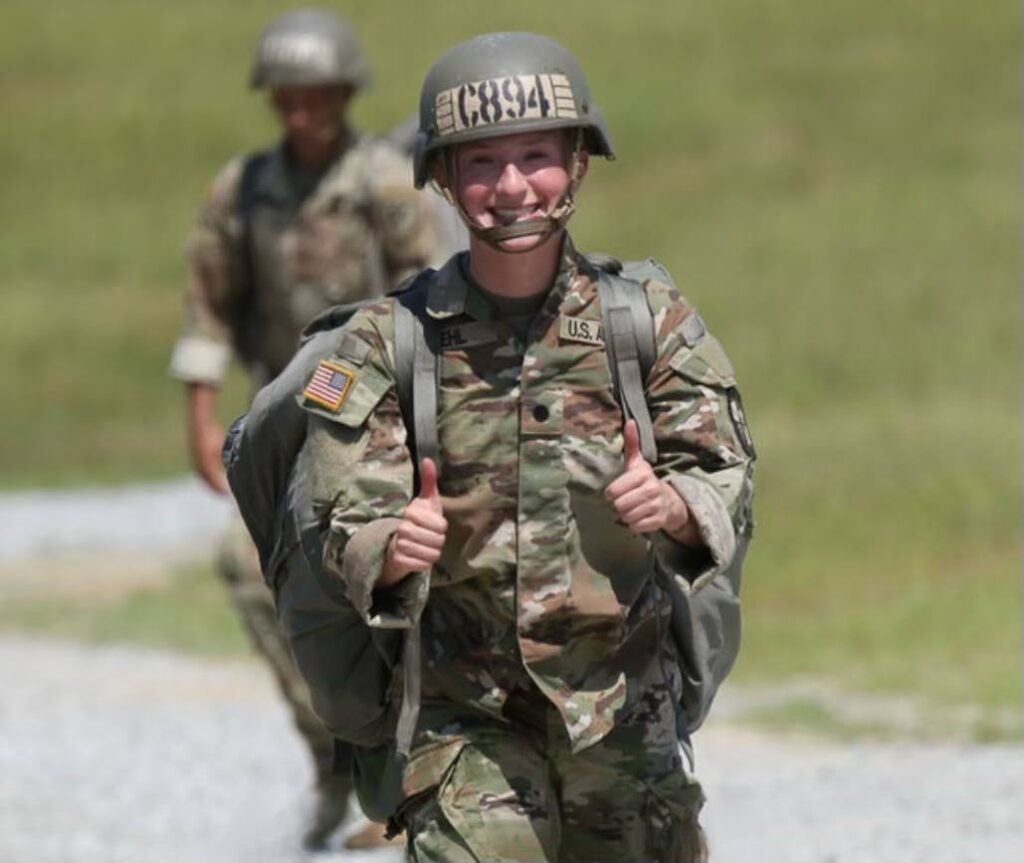
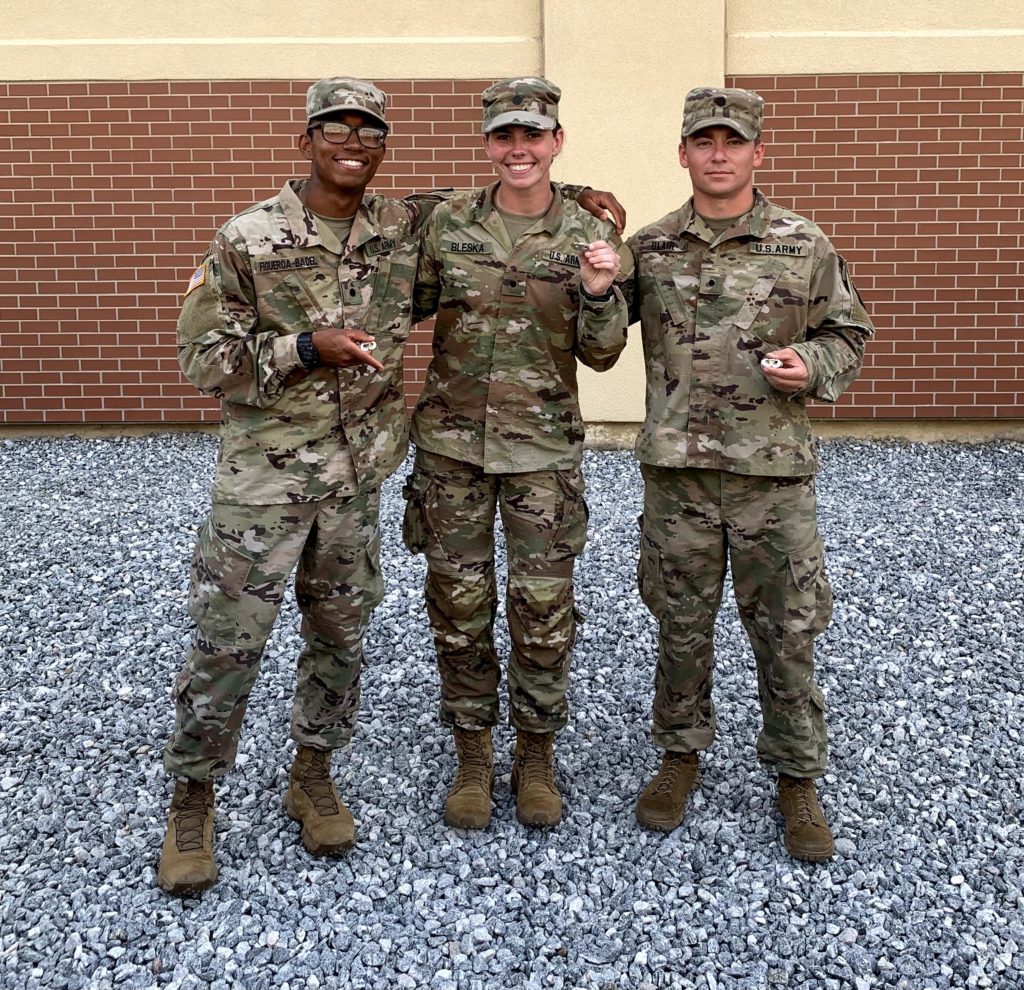
Air Assault School
U.S. Army Air Assault School is a 10-day course designed to prepare Soldiers for insertion, evacuation, and pathfinder missions that call for the use of multipurpose transportation and assault helicopters. Air Assault training focuses on the mastery of rappelling techniques and sling load procedures, skills that involve intense concentration and a commitment to safety and preparation.
Most Air Assault Cadets will attend Sabalauski Air Assault School, located at Fort Campbell, Ky. Training is broken into three phases, each lasting three days: Combat Assault Phase, Sling Load Phase, and Rappel Phase. On graduation day, Cadets will undergo a 12-mile rucksack march. When they complete the march, they will earn their wings as official Air Assault Soldiers.
Air Assault School is necessarily physically and mentally demanding, as Soldiers will be required to handle heavy equipment and perform dangerous tasks under extremely stressful conditions. Successful candidates must possess a keen eye for detail and a dedication to meticulous preparation.
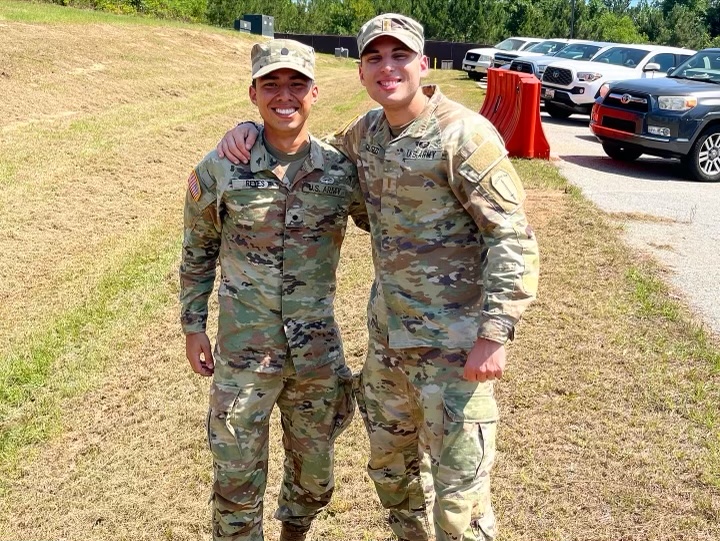
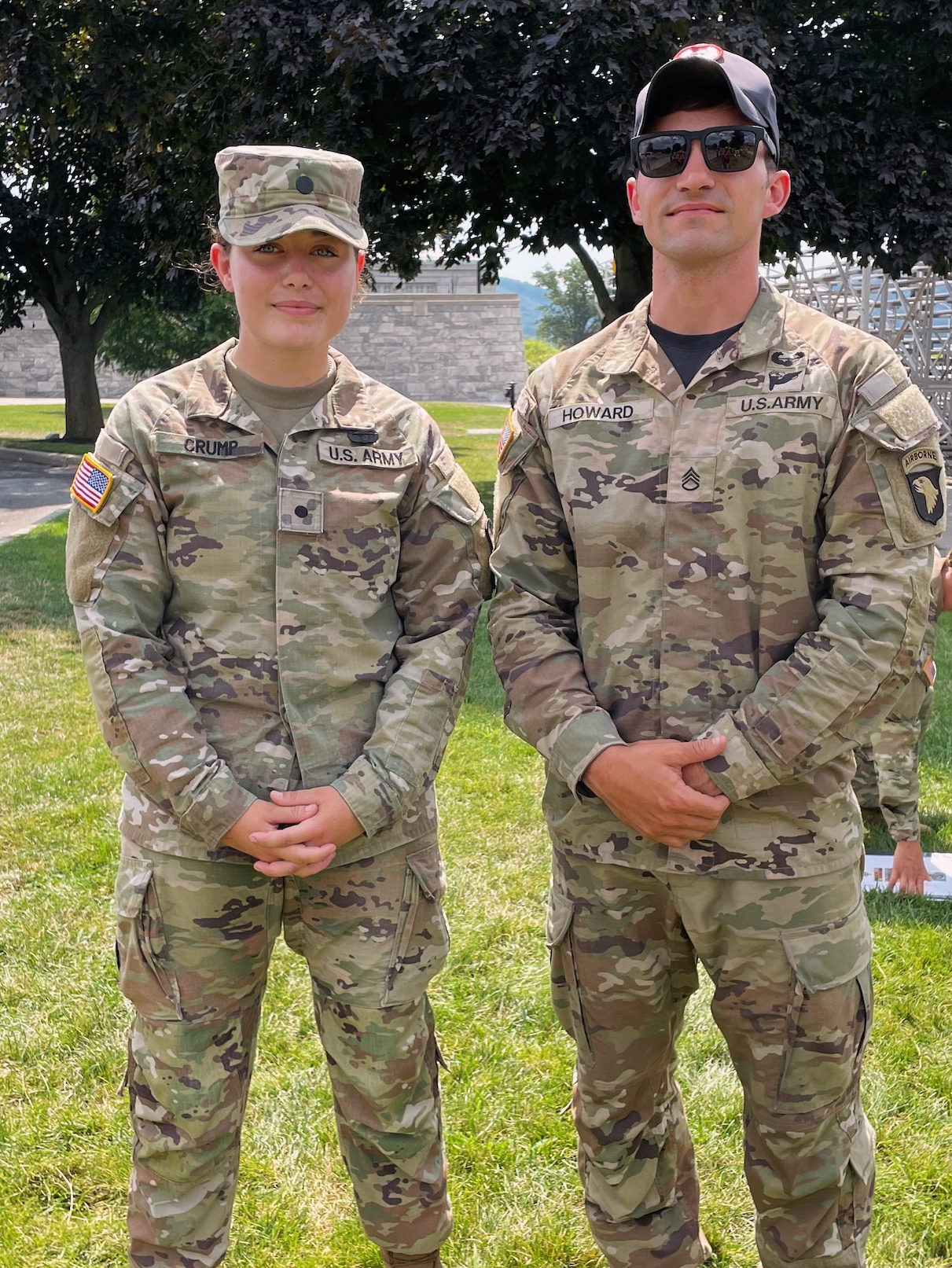
Cadet Leader Training
Cadet Troop Leader Training
The Cadet Troop Leader Training (CTLT) track provides Cadets the opportunity to experience leadership in Army Table of Organization and Equipment (TO&E) units over a three to four week period. Cadets serve in lieutenant-level leadership positions in active-duty units. Platoon Leader positions have a 3-4 week duration depending on the hosting unit and location. Assignments include units that are located CONUS and OCONUS. Cadets are assigned a unit mentor and are provided on-post lodging and meals via a Dining Facility. This program is exclusively designed for MS III Cadets before and after completion of Advanced Camp.
There are two leadership opportunities within the Cadet Troop Leader Training (CTLT) Platoon Leader. The CTLT Platoon Leader Program consists of platoon leader positions identified by active Army, Army Reserve, and National Guard units both CONUS and OCONUS. Non-SMP MSL III cadets are assigned to the CTLT Platoon Leader program by their PMS and must successfully complete Advanced Camp before proceeding to their assigned position. CTLT Platoon Leader positions do not require an application. Cadets are assigned for a period of three weeks with CONUS units and four weeks with OCONUS units. Positions are allocated to each Brigade via CCIMM. Brigades allocate positions to battalions. Cadets receive an Officer Evaluation Report upon completing the Platoon Leader assignment.
All CTLT positions are linked to a specific regiment of Advanced Camp. As a result, attendance to the specific regiment is mandatory. The assigned regiment will not be changed to accommodate personal situations.
Only cadets authorized by the Commanding General, U.S. Army Cadet Command via the Permissive Jump Authorization Memorandum may participate in jump operations while attending CTLT training. Cadets who have completed the Basic Airborne Course and are assigned in a position that requires airborne qualification. The school needs to send a copy of the orders awarding the Cadet the parachutist badge from Airborne School to the CTLT Program Manager, (757) 788-4773. No other documents may substitute “orders only”.
Our Cadet’s Experiences
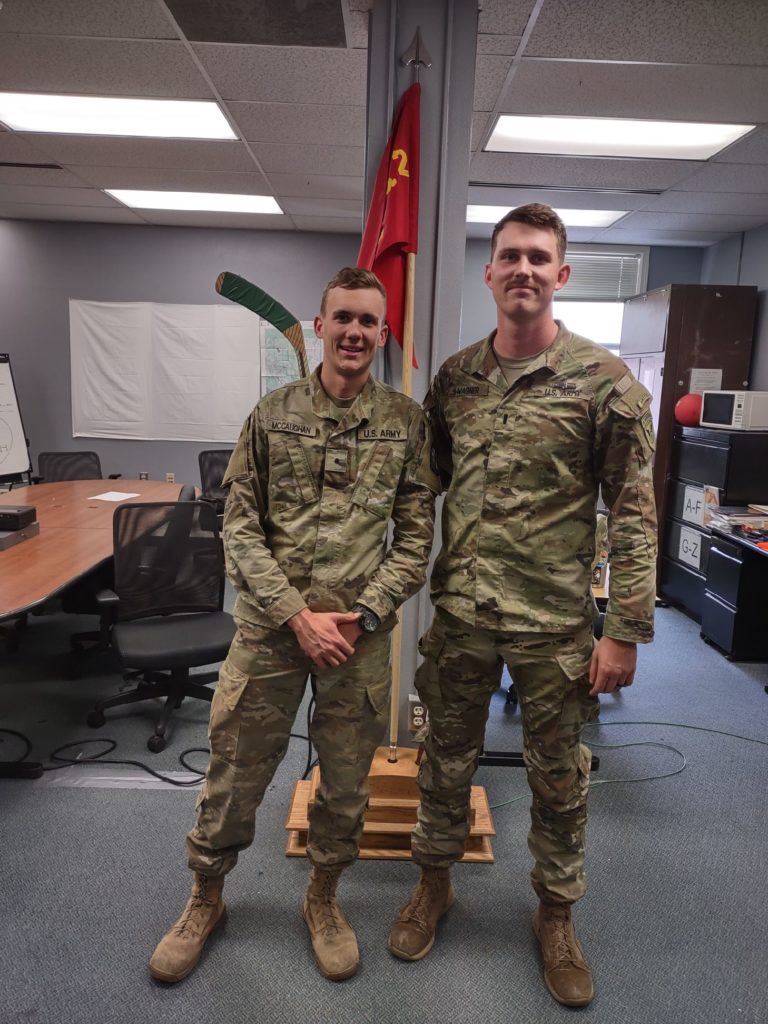
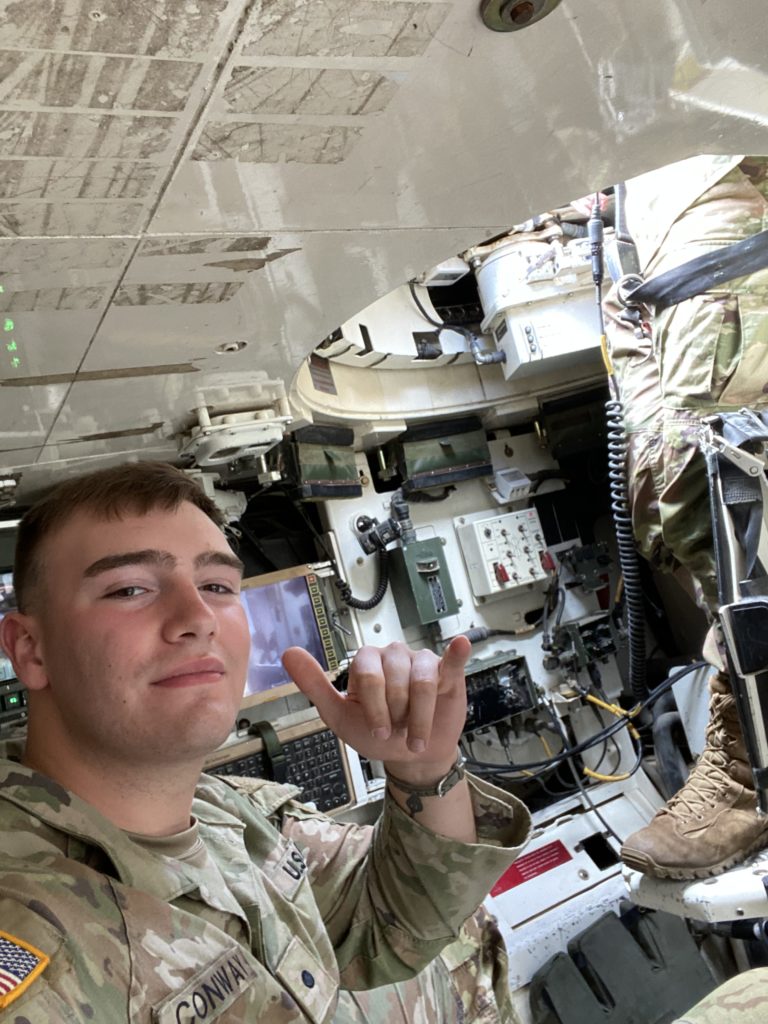
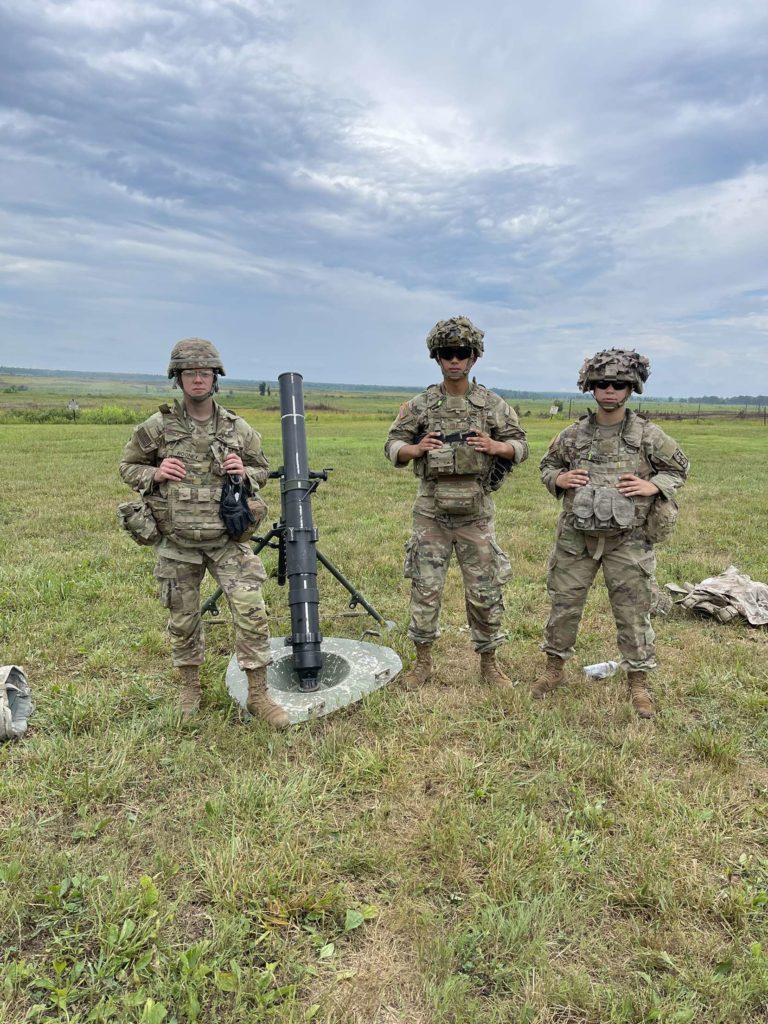
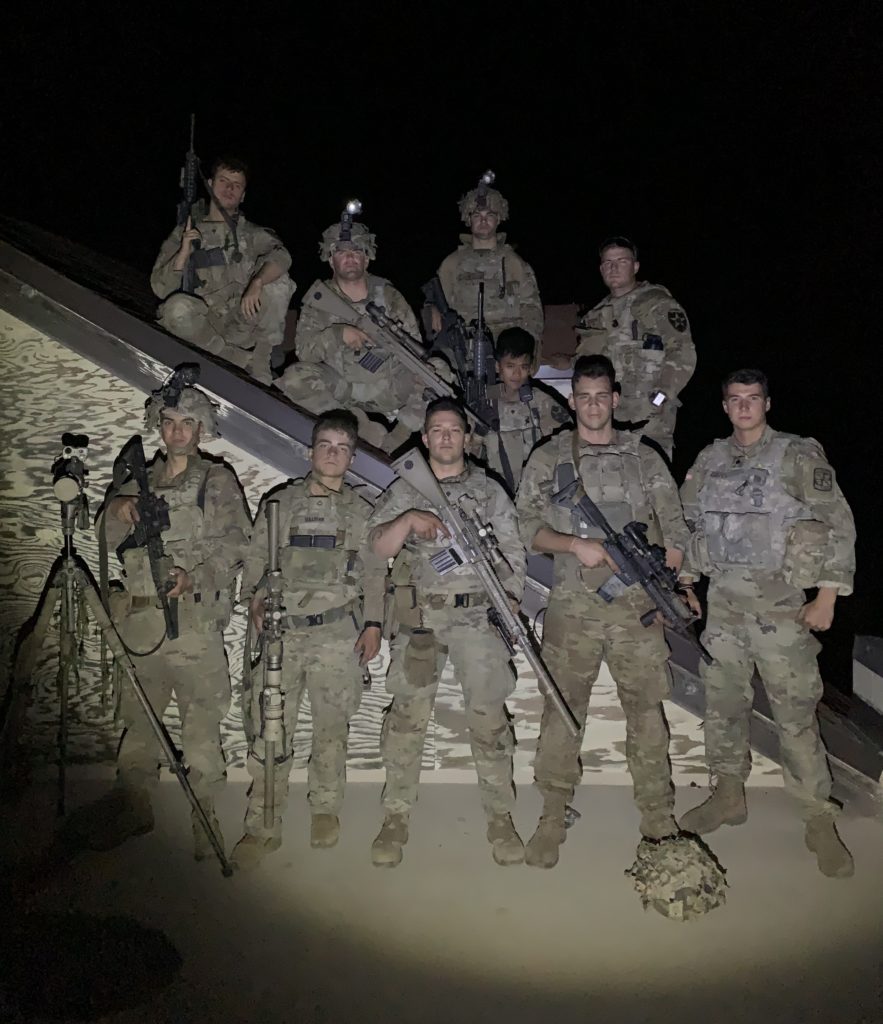
Basic Camp MSIII Leader Trainer
BC MS III Leader Trainers. Approximately 144 MS III Cadets serve as BC trainers for MS II squad leaders and provide them formal and informal developmental feedback. The Leader Trainer, working closely with BC cadre, is given the authority and responsibility of assisting in the training of BC Cadets.
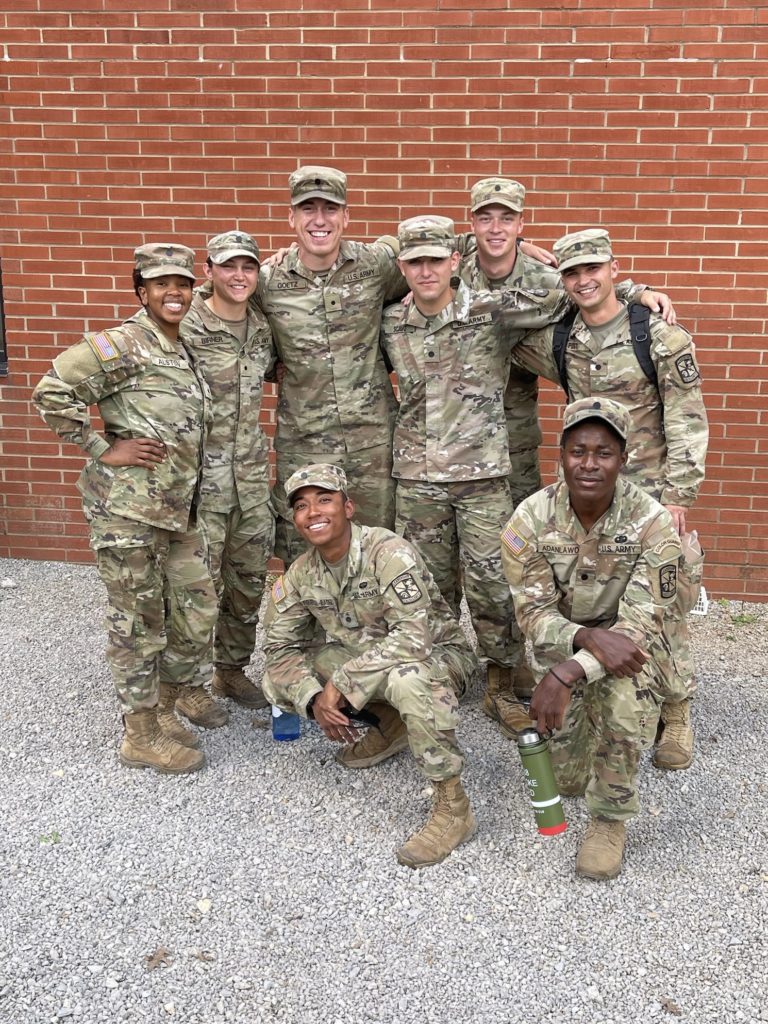
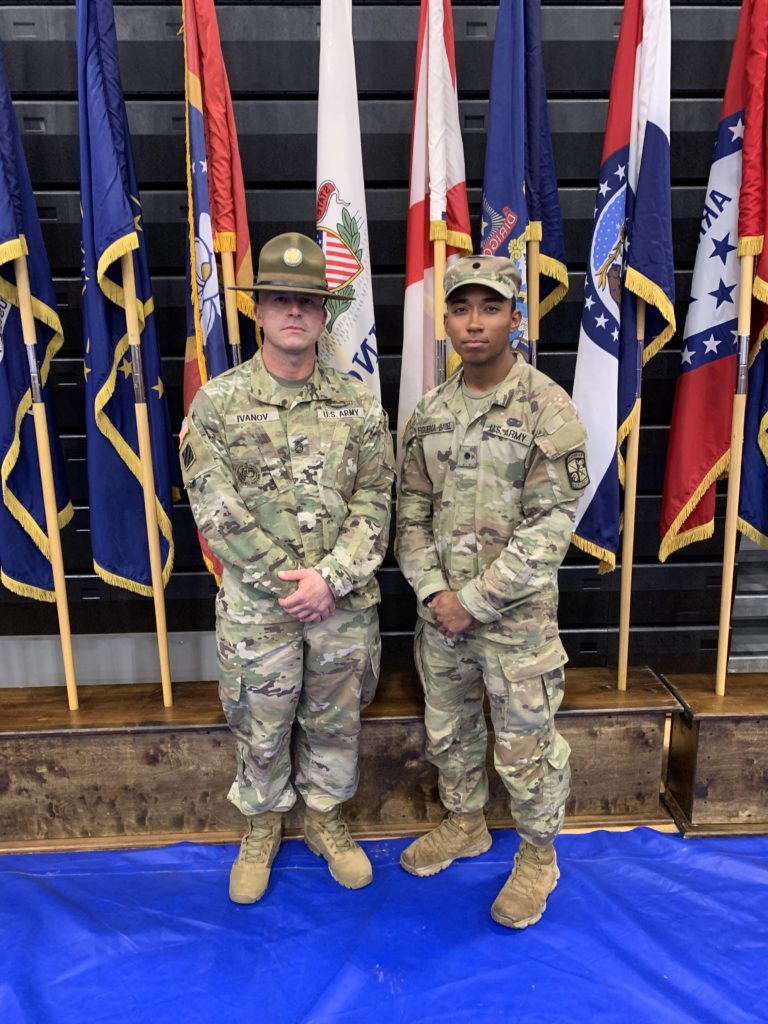
Cadet Internships
Internships offer 400 opportunities for Cadets who seek additional training in specialized areas such as scientific application, engineering, nursing, medicine, intelligence, and cyber applications based on hosting organization’s requests. Examples of available internships include the US Army Corps of Engineers (EIP), MIT Lincoln Lab Internship (MITLL), Museum Internship Program (MIP), the National Security Agency (NSA), Command, Control, Communications, Computers, Cyber, Intelligence, Surveillance and Reconnaissance (C5ISR), and Army Medical Department (AMEDD) as well as opportunities at West Point and the FBI.
Nurse Summer Training Program
Nursing students who are also Army ROTC Cadets have an opportunity for a unique summer nursing experience. The paid, four-week NSTP assigns approximately 200 Cadets to Army hospitals throughout the U.S. and Germany. The nursing program introduces Cadets to the Army Medical Department (AMEDD) and to the roles and responsibilities of an Army Nurse Corps Officer. Under the supervision of an experienced Army Nurse Corps Officer, Cadets obtain hands-on experience. Training opportunities include one-on-one clinical experience which enables Cadets to hone their clinical skills, develop problem-solving techniques and become comfortable with developing professional skills as a member of the U.S. Army Healthcare Team.

